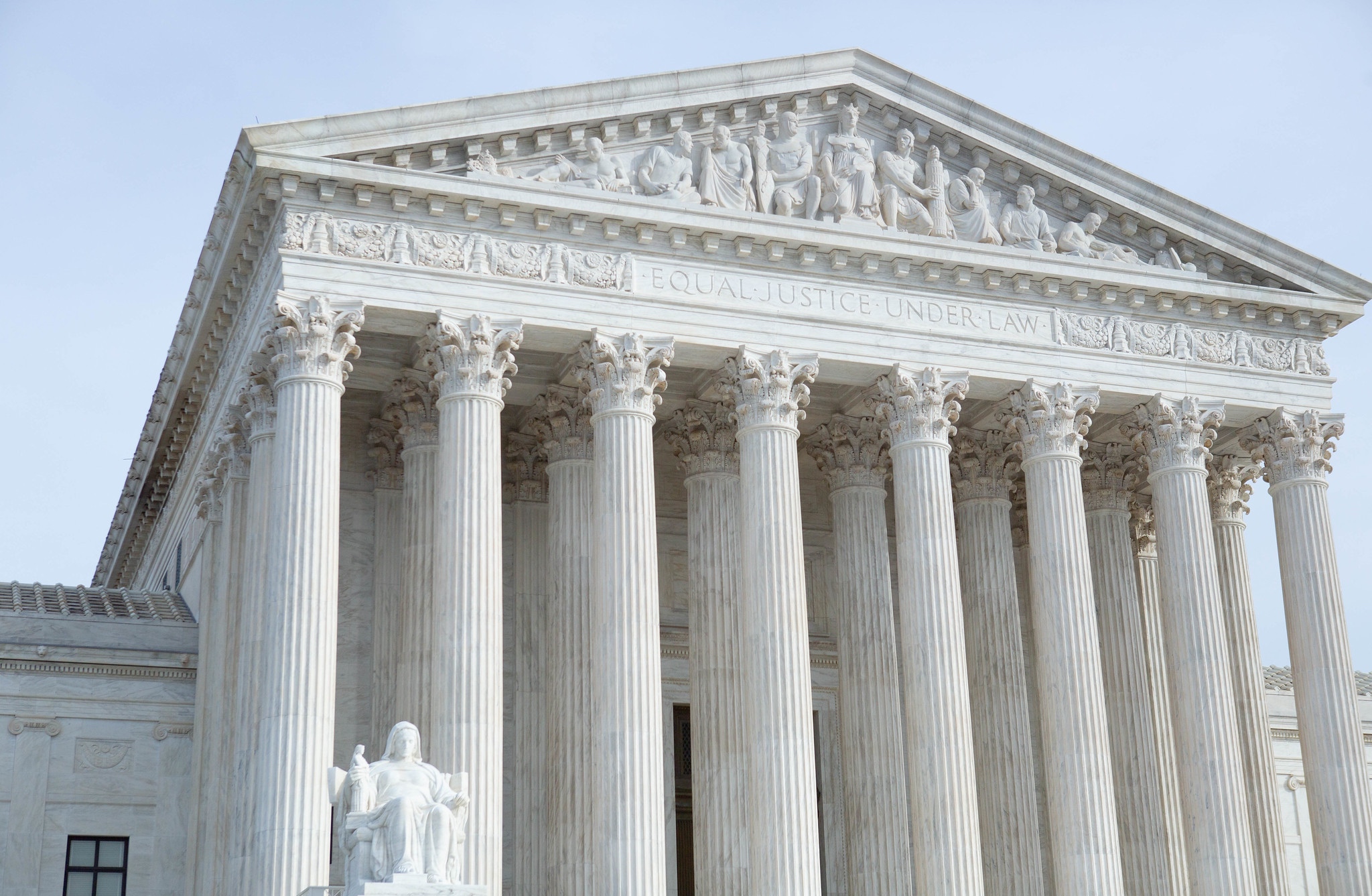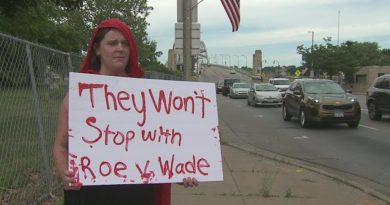Reschedule Watch: Birthright citizenship and torts to members of the armed forces
RELIST WATCH
on Oct 13, 2022
at 9:28 am
The Relist Watch column examines cert petitions that the Supreme Court has “relisted” for its upcoming conference. A short explanation of relists is available here.
This week’s update on the cases that the Supreme Court has newly relisted will be short: There aren’t any new relists. However, with one exception, all of last week’s relists are back. The odds of cert being granted decline slightly as a case is repeatedly relisted, but the odds are still elevated compared to the general run of certiorari petitions. On Monday, the justices denied review to nine-time relist Thomas v. Lumpkin, involving claims of racially biased jurors in a capital case. But Justice Sonya Sotomayor, joined by Justices Elena Kagan and Ketanji Brown Jackson, wrote an opinion dissenting from the denial of cert, arguing that the constitutional errors in Thomas’s case were so glaring she would have summarily reversed.
Since we have a little time, I thought I’d mention two cases that the court rescheduled this week. Rescheduling — when a case is moved to a later conference than it was originally scheduled to be considered at — is different than relisting (when the justices consider a case again at a subsequent conference). To begin with, at the time a case is rescheduled, the justices still haven’t considered the case as a group. But the fact that the case is being rescheduled means that at least one of the justices wants to take a closer look at it. It appears that a justice sometimes reschedules a case so that they can be prepared to advocate for a grant when the case ultimately is considered at its first conference. Sometimes, it appears, cases are rescheduled because one or more justices want to write an opinion respecting the denial of cert. But sometimes, as illustrated by some of the returning relists this week, rescheduled cases are later relisted (and, ultimately, granted).
The first of our newly rescheduled cases is Clendening v. United States. The case involves the so-called Feres doctrine, after Feres v. United States, the 1950 Supreme Court case holding that the United States is not liable under the Federal Tort Claims Act for injuries sustained by members of the armed forces while on active duty and resulting from the negligence of others in the armed forces. The injuries in Clendening were not the sort of combat-related or even job-related injuries one would expect: petitioner Carol Clendening seeks to recover for her late husband’s exposure to toxic drinking water while serving as a judge advocate general officer at Camp Lejeune, North Carolina. Justice Clarence Thomas has repeatedly criticized the Feres doctrine — like Justice Antonin Scalia before him — so it’s likely that he is taking a close look at this case and may once again urge his colleagues to overrule the case that is the doctrine’s fountainhead.
Next up is Fitisemanu v. United States. Under a series of cases the Supreme Court decided over 100 ago, known as the Insular Cases, people born in unincorporated U.S. territories, such as American Samoa, are not entitled to all constitutional protections, including U.S. citizenship. (People born in the other territories — Guam, the Northern Mariana Islands, Puerto Rico, and the U.S. Virgin Islands — do have birthright citizenship by act of Congress.) The Insular Cases have come under recent criticism by Justice Neil Gorsuch. In a 10-page concurrence earlier this year in United States v. Vaello Madero, Gorsuch called for the Insular Cases to be overruled, writing that “[i]t is past time to acknowledge the gravity of this error and admit … [t]he Insular Cases have no foundation in the Constitution and rest instead on racial stereotypes.” Gorsuch said he hoped the court would overturn those cases soon in “an appropriate case.” He noted that “[l]ower courts continue to feel constrained to apply their terms,” citing the then-recent decision of the U.S. Court of Appeals for the 10th Circuit in Fitisemanu v. United States. There, a divided panel held based on the Insular Cases that “unincorporated” U.S. territories are not considered “the United States” under the 14th Amendment’s citizenship clause.
Only a week after Vaella Madero, John Fitisemanu, Pale Tuli, and Rosavita Luti, who were born in American Samoa, filed their cert petition with the court. Fitisemanu v. United States asks the justices to overrule the Insular Cases and grant birthright citizenship to people born in American Samoa and the other U.S. territories. Fitisemanu and the Tulis argue that the 14th Amendment, adopted after the Civil War, embraced the founding-era common-law understanding of birthright citizenship. They argue that “[f]ew questions are more important to our constitutional system than who is entitled to United States citizenship.” Based on his concurrence, it seems likely that this petition has Gorsuch’s close attention.
Until next time, stay safe!
New Relists
Your attention to detail leaves something to be desired.
Returning Relists
Anthony v. Louisiana, 21-993
Issues: (1) Whether the presumption of innocence, the right to confrontation and the right to a fair trial permit a court to allow the grand jury prosecutor to take the stand and offer testimony regarding the prosecutor’s belief about the credibility of the alleged victims, the guilt of the defendant and the strength of the state’s evidence; (2) whether the admission of such prosecutorial testimony constitutes structural error or, instead, is subject to harmless error review; and (3) whether a reviewing court’s conclusion that the evidence at trial supports the defendant’s convictions even excluding the grand jury prosecutor’s testimony meets the state’s burden of proving harmless error beyond a reasonable doubt.
(rescheduled before the June 16 conference; relisted after the June 23, June 29, Sept. 28 and Oct. 7 conferences)
Buffington v. McDonough, 21-972
Issues: (1) Whether the doctrine of Chevron U.S.A., Inc. v. Natural Resources Defense Council, Inc. permits courts to defer to the Department of Veterans Affairs’ construction of a statute designed to benefit veterans, without first considering the pro-veteran canon of construction; and (2) whether Chevron should be overruled.
(rescheduled before the May 12, May 19, May 26, June 2, June 9, June 16, June 23 conferences; relisted after the Sept. 28 and Oct. 7 conferences)
Khorrami v. Arizona, 21-1553
Issue: Whether the Sixth and 14th Amendments guarantee the right to a trial by a 12-person jury when the defendant is charged with a felony.
(relisted after the Sept. 28 and Oct. 7 conferences)
Juno Therapeutics, Inc. v. Kite Pharma, Inc., 21-1566
Issue: Whether the adequacy of the “written description of [an] invention” is measured by the statutory standard of “in such full, clear, concise, and exact terms as to enable any person skilled in the art to make and use the same” in 35 U.S.C. § 112(a), or by the Federal Circuit’s test that the “written description of the invention” must demonstrate the inventor’s “possession” of “the full scope of the claimed invention” including all “known and unknown” variations of each component.
(relisted after the Sept. 28 and Oct. 7 conferences)
Shoop v. Cunningham, 21-1587
Issues: (1) Whether the U.S. Court of Appeals for the 6th Circuit erred by granting habeas relief based on an alleged misapplication of its own circuit precedent under the Antiterrorism and Effective Death Penalty Act, which generally prohibits courts from awarding habeas relief to state prisoners but lifts that prohibition with respect to prisoners in custody because of a state-court ruling that was “contrary to, or involved an unreasonable application of, clearly established Federal law, as determined by the Supreme Court of the United States”; and (2) whether, when the requirements for a federal evidentiary hearing are otherwise satisfied but Federal Rule of Evidence 606(b)(1) forbids considering the only evidence supporting an evidentiary hearing, a court must hold the hearing regardless.
(relisted after the Sept. 28 and Oct. 7 conferences)
Chinn v. Shoop, 22-5058
Issues: (1) Whether a petitioner who raises a claim under Brady v. Maryland must establish that they were more likely than not prejudiced by the government’s suppression of favorable evidence; and (2) whether the judgment of the U.S. Court of Appeals for the 6th Circuit requiring the petitioner in this case to establish that he was more likely than not prejudiced by the government’s suppression of favorable evidence should be summarily reversed.
(relisted after the Sept. 28 and Oct. 7 conferences)





